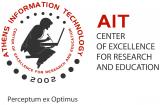Consortium
Consortium
Realizing the SMART vision requires excellence on a wide range of research and technological areas. The SMART platform, its components for sensor data collection, filtering and processing, the development of A/V processing algorithms suitable for producing environment generated content, the interception of social networks with sensor networks, as well as the specification and prototyping of added-value sensor search applications ask for expertise in the areas of audio analysis, video analysis, multimodal analysis, distributed systems, semantic and knowledge representation technologies, social search, as well as application development and integration. Moreover, the distribution of SMART results as open source software, asks for understanding and expertise in the organization, management, maintenance and evolution of open source project. Overall, effort has to be allocated along the following axes:
- Collecting requirements from all stakeholders including environmental data providers, content providers, service providers, software vendors and potential end-users.
- Designing the overall architecture of the SMART platform, comprising a variety of hardware (i.e. sensors and gateways), software and middleware components.
- Advancement of leading edge perceptual processing algorithms (both video and audio), which will be customized in order to automatically extract context and metadata from environment generated context (notably through far field operation in outdoor environments).
- Knowledge representation of the SMART meta-data through linking/reusing of sensor ontologies, MPEG-7 and other formats, depending on the target applications.
- Implementing reasoning mechanisms which will correlate EGC structures established in the scope of the SMART knowledge representation.
- Formulating queries for sensor/environment generated content and accordingly processing them in order to select the appropriate content based on variety of criteria and metadata such as location, time, thematic pertinence and content-similarity.
- Intercepting social networks and sensor networks in order to enable social queries about environment generated content.
- Designing and implementing reusable mashup libraries for social sensor queries in order to facilitate the development of applications combining social with sensor search.
- Integrating the components of the SMART search engine and accordingly implementing validating use cases.
- Establishing an open source project for the core components of the SMART engine and accordingly creating an open source community around it.
- Identifying business models for the SMART search services, including appropriate utility metrics and participation incentives.
- Disseminating, exploiting and boosting the medium term commercialization of the results.
- Successfully managing the project at both the administrative, financial, ethical and scientific level.
Targeting all these areas requires expertise in multiple research and technological disciplines. SMART brings together a balanced mix of research institutes, research labs, universities, as well as the R&D departments of several industries including one Small Medium Enterprise.









